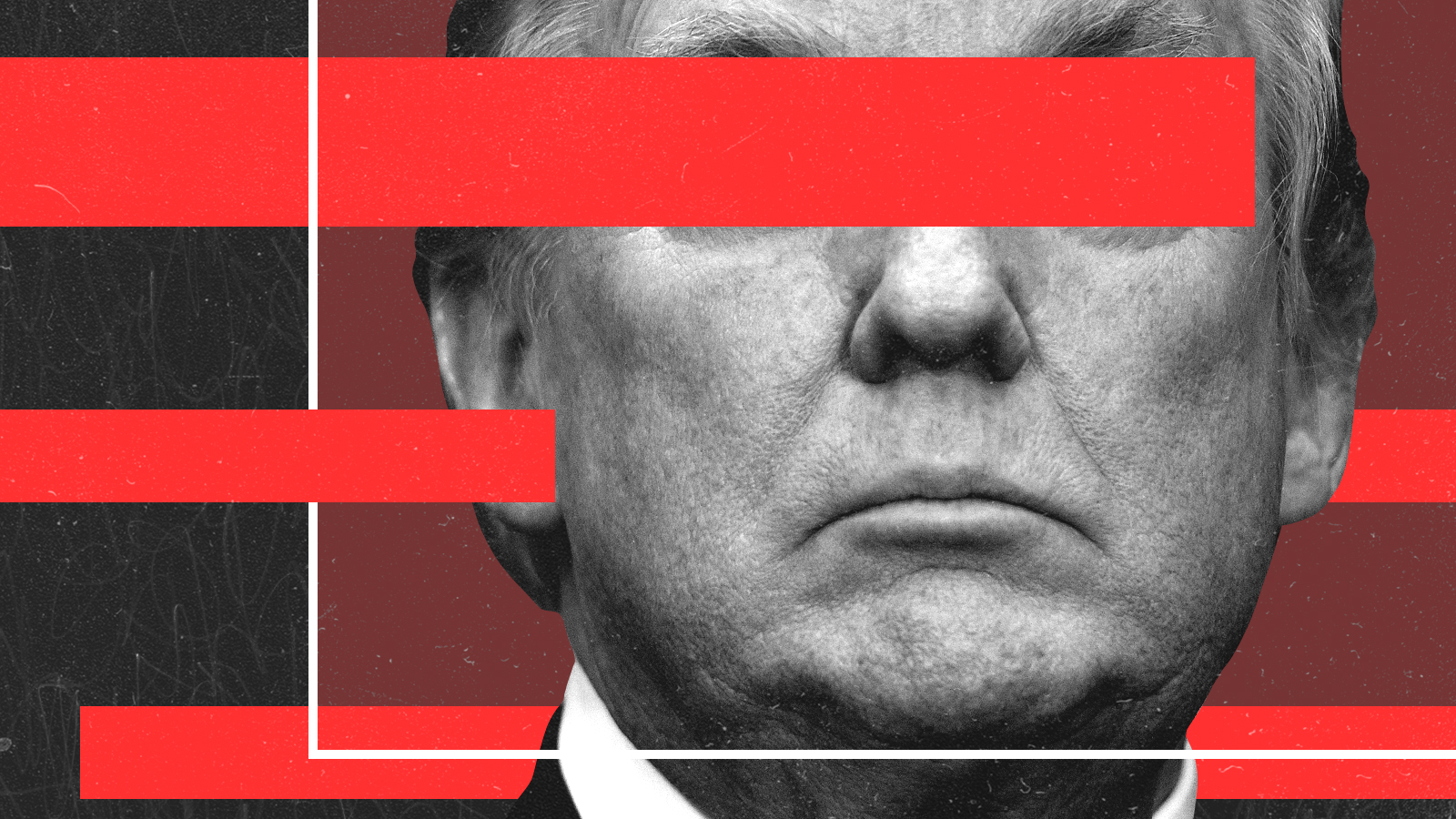A former Trump official explains why Russia found America ripe for meddling


A free daily email with the biggest news stories of the day – and the best features from TheWeek.com
You are now subscribed
Your newsletter sign-up was successful
The age of tell-all books about former President Donald Trump's administration is in full-swing. The latest is a memoir from Stephanie Grisham, briefly his White House press secretary. It's full of gossipy tidbits, like the time she witnessed him telling Russian President Vladimir Putin he'd act tough on Russia "for the cameras" at a 2019 summit.
That anecdote and more will dominate the headlines for a day or two. But if you want to better understand Trump's relationship with Russia — and why it still matters — a better source is a new article from Fiona Hill in Foreign Affairs.
Hill served on Trump's National Security Council and is probably best known for the testimony she gave against her former boss during his first impeachment trial in 2019. Like Grisham, she offers some juicy, up-close observations: At the infamous 2018 Helsinki press conference, for example, as she watched Trump contradict his own intelligence agencies to publicly affirm Putin's denial of Russia interference in America's 2016 presidential election, "I contemplated throwing a fit or faking a seizure and hurling myself backward into the row of journalists behind me," Hill writes.
The Week
Escape your echo chamber. Get the facts behind the news, plus analysis from multiple perspectives.

Sign up for The Week's Free Newsletters
From our morning news briefing to a weekly Good News Newsletter, get the best of The Week delivered directly to your inbox.
From our morning news briefing to a weekly Good News Newsletter, get the best of The Week delivered directly to your inbox.
More disturbing, though, is Hill's appraisal of why Russia found America ripe for meddling:
Putin realized that despite the lofty rhetoric that flowed from Washington about democratic values and liberal norms, beneath the surface, the United States was beginning to resemble his own country: a place where self-dealing elites had hollowed out vital institutions and where alienated, frustrated people were increasingly open to populist and authoritarian appeals. The fire was already burning; all Putin had to do was pour on some gasoline. [...] The polarization of American society has become a national security threat, acting as a barrier to the collective action necessary for combating catastrophes and thwarting external dangers. (Fiona Hill at Foreign Affairs)
Given our faltering, polarized response to the COVID pandemic, who can doubt she's correct?
It's still tempting to treat Trump's presidency as an aberration — this is part of why the tell-alls sell — or Trump himself as too incompetent to bring down American democracy. Hill's essay identifies deeper flaws in our polity that made Trump possible and offers possible solutions. "Democracy is not self-repairing," she warns. "It requires constant attention." Anything to do with Trump still attracts plenty of attention, so the real question is whether we'll act before it's too late.
A free daily email with the biggest news stories of the day – and the best features from TheWeek.com
Joel Mathis is a writer with 30 years of newspaper and online journalism experience. His work also regularly appears in National Geographic and The Kansas City Star. His awards include best online commentary at the Online News Association and (twice) at the City and Regional Magazine Association.
-
 6 of the world’s most accessible destinations
6 of the world’s most accessible destinationsThe Week Recommends Experience all of Berlin, Singapore and Sydney
-
 How the FCC’s ‘equal time’ rule works
How the FCC’s ‘equal time’ rule worksIn the Spotlight The law is at the heart of the Colbert-CBS conflict
-
 What is the endgame in the DHS shutdown?
What is the endgame in the DHS shutdown?Today’s Big Question Democrats want to rein in ICE’s immigration crackdown
-
 Witkoff and Kushner tackle Ukraine, Iran in Geneva
Witkoff and Kushner tackle Ukraine, Iran in GenevaSpeed Read Steve Witkoff and Jared Kushner held negotiations aimed at securing a nuclear deal with Iran and an end to Russia’s war in Ukraine
-
 Kurt Olsen: Trump’s ‘Stop the Steal’ lawyer playing a major White House role
Kurt Olsen: Trump’s ‘Stop the Steal’ lawyer playing a major White House roleIn the Spotlight Olsen reportedly has access to significant US intelligence
-
 Trump’s EPA kills legal basis for federal climate policy
Trump’s EPA kills legal basis for federal climate policySpeed Read The government’s authority to regulate several planet-warming pollutants has been repealed
-
 House votes to end Trump’s Canada tariffs
House votes to end Trump’s Canada tariffsSpeed Read Six Republicans joined with Democrats to repeal the president’s tariffs
-
 Bondi, Democrats clash over Epstein in hearing
Bondi, Democrats clash over Epstein in hearingSpeed Read Attorney General Pam Bondi ignored survivors of convicted sex offender Jeffrey Epstein and demanded that Democrats apologize to Trump
-
 Judge blocks Trump suit for Michigan voter rolls
Judge blocks Trump suit for Michigan voter rollsSpeed Read A Trump-appointed federal judge rejected the administration’s demand for voters’ personal data
-
 US to send 200 troops to Nigeria to train army
US to send 200 troops to Nigeria to train armySpeed Read Trump has accused the West African government of failing to protect Christians from terrorist attacks
-
 Grand jury rejects charging 6 Democrats for ‘orders’ video
Grand jury rejects charging 6 Democrats for ‘orders’ videoSpeed Read The jury refused to indict Democratic lawmakers for a video in which they urged military members to resist illegal orders
